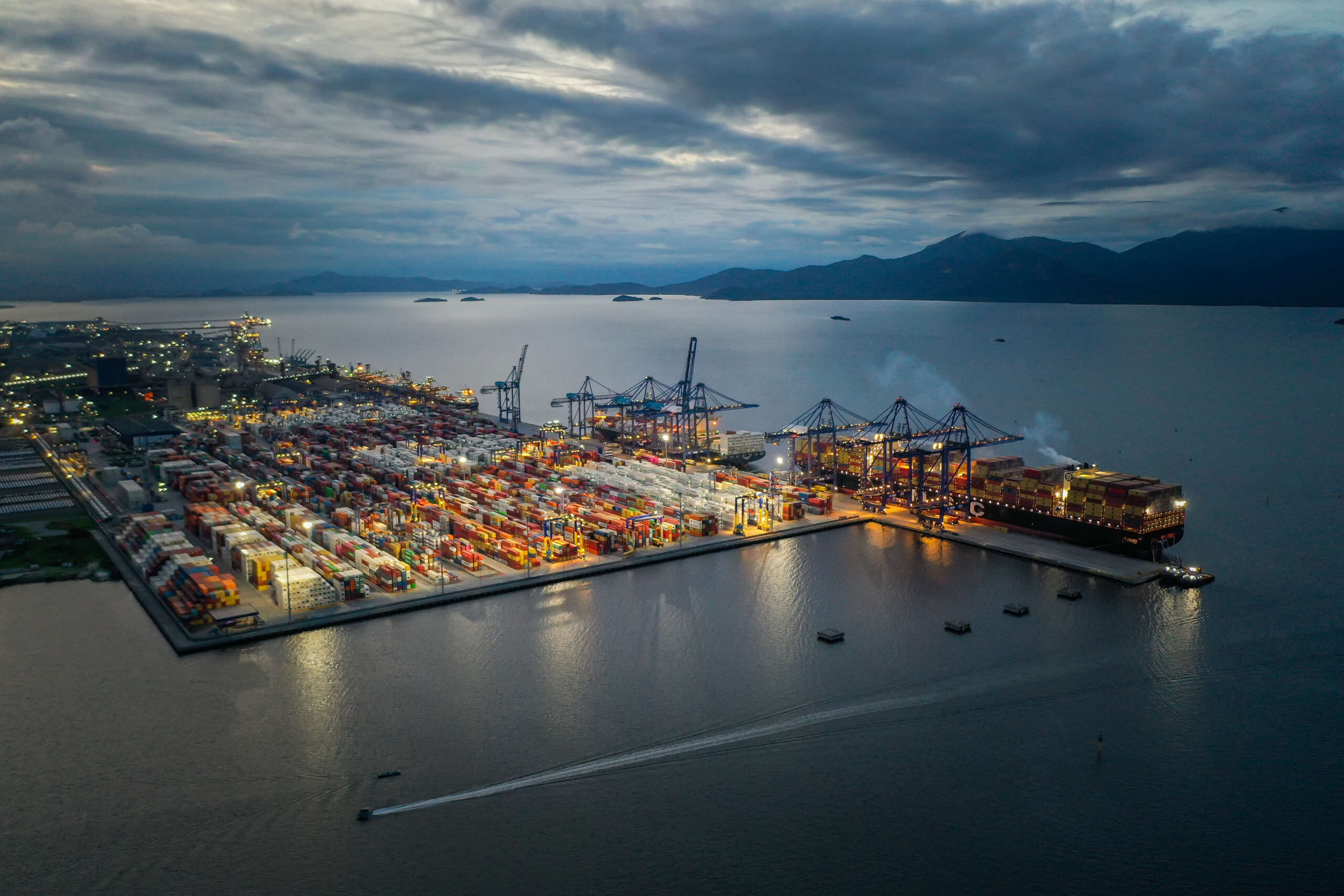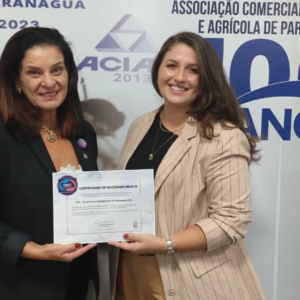Container throughput and number of berths reached new highs for the period; agribusiness exports boost results
Celebrating 26 years of history this Saturday, April 13, TCP, the company that manages the Paranaguá Container Terminal, achieved new productivity records in the first quarter of 2024. These include container throughput, which reached 373,522 TEUs (20-foot container units), 38% more than the 271,024 TEUs recorded in the first three months of 2023. Of this total, 133,083 TEUs were handled in March alone, setting a new monthly record, 4.07% higher than the last high, which was in December 2023.
During this period, the main commodities handled by the Terminal saw significant increases, such as wood exports (+61%), which rose from 18,666 to 30,045 TEUs, equivalent to 441. 485 tons; pulp and paper (+116%), up from 10,003 to 21,624 TEUs, equal to 289,106 tons; and meat and frozen foods (+11%), which went from 59,836 to 66,544 TEUs, corresponding to 1,056,558.44 tons.
In the handling of meat and frozen products, TCP’s main segment of operations, the commercial, logistics and service manager, Giovanni Guidolim, highlights the strategic investment in expanding the area dedicated to the storage of refrigerated containers. “The 45% increase in the number of sockets, from 3,624 to 5,268, makes TCP the largest reefer yard in all of South America. With this, we are able to offer the market greater operational flexibility, both in terms of storing these containers and greater flexibility in receiving them in advance of the ship docking,” he says.
Guidolim also pointed out that, even in challenging times for maritime transportation, the most recent investments in the Terminal’s infrastructure have ensured greater flexibility and safety. “The increase in handling is the result of our focus on customer service, who trust in our service. The arrival of new equipment, such as the 11 RTGs and 17 Terminal Tractors, as well as the modernization of our gate, which should be completed this month, have brought greater operational power, which translates into gains in efficiency and agility for exporters, importers and shipowners.”
With a machinery park made up of 40 RTG cranes, responsible for loading and unloading containers from the trucks to the stacks, and 69 Terminal Tractors (TT), which are the trucks that transport the containers from the stacks to the quay, the Paranaguá Container Terminal has been able to absorb the increased demand in the market. This has been helped by the refurbishment of the gates, the access gates for road transport to the terminal, which, with modernization and new technologies on board, are capable of tripling the flow of trucks passing through, reaching 150 appointments per hour.
New maritime services, record berths and the arrival of mega-ships
Along with the historic movement of containers, TCP also achieved a new record in the number of berths: there were 258 in the first quarter, an average of 86 vessels per month. The record for a single month came in February, which, despite being a shorter month, recorded 89 berths.
Today, the Paranaguá Container Terminal offers 22 weekly services and is considered the terminal with the highest concentration of shipping lines in the country. In 2024 alone, three new lines, one long-haul, connecting the east coast of South America to the Gulf of the United States, and two cabotage lines, became part of TCP’s portfolio.
The commercial manager for shipowners, Carolina Merkle Brown, explains that “with the recent investments in infrastructure, TCP is working to consolidate itself as one of the main port hubs in South America, concentrating shipowners’ operations efficiently, as well as offering greater security and agility to receive the largest ships arriving on the Brazilian coast”.
In the first quarter of 2024, the Terminal received the largest vessels in history to dock at its quay: three 366-meter-long ships with a capacity to store more than 14,400 TEUs arrived at TCP. “Operating container ships of this size represents an advantage for shipowners, as well as for exporters and importers, as they increase the operational power in Paranaguá, bringing greater transportation capacity to our customers,” adds Carolina.



